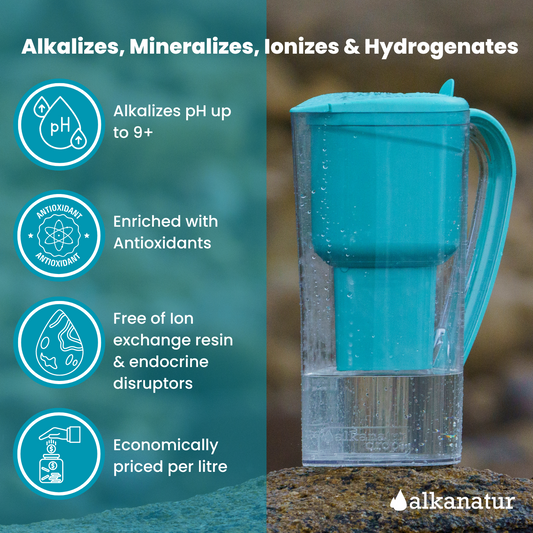Higher Fluoride Levels During Pregnancy May Be Linked With Lower IQ Scores in Kids: Case Study. Children whose mothers were exposed to higher levels of fluoride in their tap water during pregnancy scored lower on IQ tests than those with mothers who had less exposure while pregnant, according to a new study.
In an effort to determine whether fluoride should be considered a neurotoxin, researchers from York University in Toronto conducted an observational study of 512 mother-child pairs from six major Canadian cities. Of this sample, 40 percent lived in communities with fluoridated municipal water.
“We went into this not knowing what to expect… no study had been done on pregnancy and fluoride exposure,” lead author Christine Till told CTV News.
“It was shocking to see the size of the effect. I suppose it’s a shock because we were all told that it’s safe… but when you think about it, we shouldn’t be so shocked because there is literature and decades of work showing this effect. There are biological reasons the fetus can be at increased risk of neurotoxicity, so we are taking these findings very seriously.”
Fluoride is a naturally occurring mineral that is present in nearly all water sources and is associated with reduced tooth decay. The Public Health Agency of Canada (PHAC) says fluoride molecules can strengthen teeth by hardening tooth enamel, contributing to tooth surface re-mineralization, and deterring oral bacteria.
For decades, governments around the world have added fluoride to public drinking water to reduce rates of tooth decay in children and adults.
Despite being endorsed by major public health bodies around the world, including the World Health Organization and the U.S. Centers for Disease Control and Prevention, which considers water fluoridation one of the top 10 public health achievements of the 20th century, communities have resisted adding the mineral to their water supply out of concern that it is potentially toxic.
According to PHAC, only 13.9 million Canadians or 38 percent of the population had access to public fluoridated water in 2017.
By comparison, York University researchers said that 66 percent of U.S. residents had access to fluoridated water. Europe, on the other hand, only had fluoridated water for 3 percent of its residents, but they rely on other strategies to distribute the mineral, such as supplements and dental treatments.
For this study, published in the JAMA Pediatrics journal on Monday, the academics used information from the Maternal-Infant Research on Environmental Chemicals report to determine the potential association between fluoride exposure during pregnancy and cognitive development in children.
The children’s exposure to the mineral was estimated by the fluoride concentration in the mother’s urine samples while they were pregnant and how much water they reported they consumed during their first and third trimesters.
When the children were three to four years old, their IQ was assessed using the Wechsler Primary and Preschool Scale of Intelligence test.
After controlling for other confounding factors, such as fluoride metabolism and children’s intellectual abilities, the researchers found that a 1-mg/L increase in maternal urinary fluoride concentration was associated with a 4.5-point lower IQ score in boys. There wasn’t a statistically significant association in girls, the study said.
“This is a major loss of IQ points that would have societal and economic impacts; it would definitely be felt at a population level,” said Till.
“4.5 points is a dramatic loss of IQ, comparable to what you’d see with lead exposure, and that’s why we’re so concerned.”
However, when the exposure was measured only by the pregnant mothers’ self-reported daily intake of water, a 1-mg/L increase in fluoride was associated with a deficit of 3.7 points in both boys and girls.
In a statement to CTV News, the Canadian Dental Association said it was reviewing the findings.
“While the study does not address the oral health benefits of fluoridated municipal water, the Canadian Dental Association is reviewing the findings in consultation with our colleagues in the scientific community,” read the statement.
“It is important to recognize that this is one study with small sample sizes within the context of more than 40 years of other research on the safety and health benefits of fluoridated water. Careful attention to oral health is particularly important during pregnancy, and CDA recommends that women see their dentist as part of maintaining their oral health.”
The study’s authors acknowledged some of the limitations of their research, including its observational design, how fetal fluoride exposure and estimated fluoride intake was measured, and the lack of assessment of fluoride exposure during infancy.
The researchers said their findings indicate a possible need to reduce fluoride intake during pregnancy.
“Based on our findings, we’re recommending that women reduced fluoride intake during pregnancy,” Till said.
“It’s important to note that there are many sources of fluoride, but one major source is fluoridated water, which counts for about 70 percent of our intake.”
Till acknowledged that the study results may be controversial. JAMA Pediatrics has defended its decision to publish the paper, noting that the decision was “not easy.”
“Given the nature of the findings and their potential implications, we subjected it to additional scrutiny for its methods and the presentation of its findings,” read a statement issued Monday alongside the publication.
“Publishing it serves as a testament to the fact that JAMA Pediatrics is committed to disseminating the best science based entirely on the rigour of the methods and the soundness of the hypotheses tested, regardless of how contentious the results may be.”
Article from: https://www.ctvnews.ca/
Alkanatur Alkaline Water Filter Pitcher with Magnesium & Antioxidants – Alkanatur North America









